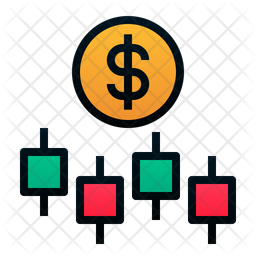It seems there might be a typo in your question. If you meant “Forex trading,” then it refers to the buying and selling of currencies on the foreign exchange market. Here’s a brief overview:
Forex (FX) market is a global decentralized or over-the-counter (OTC) market for trading currencies. It’s the largest financial market in the world, with trillions of dollars exchanged daily. Forex trading involves trading one currency against another in pairs. The most commonly traded currency pairs include EUR/USD (Euro/US Dollar), GBP/USD (British Pound/US Dollar), USD/JPY (US Dollar/Japanese Yen), and USD/CHF (US Dollar/Swiss Franc).The forex market operates 24 hours a day, five days a week, across major financial centers worldwide.
This continuous trading allows traders to respond to news and events that may affect currency prices. Forex trading often involves the use of leverage, which allows traders to control larger positions with a relatively small amount of capital. While leverage can amplify profits, it also increases the potential for losses. In forex trading, currencies are quoted in pairs, with a bid price (the price at which the market will buy a currency pair) and an ask price (the price at which the market will sell a currency pair.
Participants in the forex market include banks, financial institutions, corporations, governments, central banks, speculators, and individual traders. There are various trading strategies employed in forex trading, including day trading, swing trading, scalping, and position trading. These strategies rely on technical analysis, fundamental analysis, or a combination of both to make trading decisions. Risk management is crucial in forex trading to protect capital and minimize losses. Traders often use stop-loss orders, position sizing, and risk-reward ratios to manage risk effectively.
Forex traders use online trading platforms provided by brokers to execute trades, access real-time market data, and analyze charts and indicators. Forex trading is subject to regulatory oversight in most countries to ensure fair and transparent trading practices. Traders should choose regulated brokers to ensure the safety of their funds and adherence to regulatory standards. Forex trading offers opportunities for profit but also involves significant risks, so it’s essential for traders to educate themselves, develop a trading plan, and practice risk management techniques.
